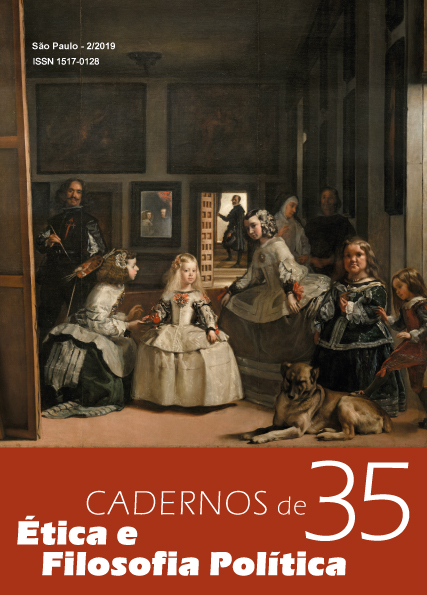The archeology and politics of antihumanism
DOI:
https://doi.org/10.11606/issn.1517-0128.v2i35p200-215Keywords:
Foucault, Archeology, Practice, Representation, HumanismAbstract
The article proposes to interpret Archeology as a practice by analyzing it as a method that aims not only to circumscribe the discursive fields that make possible the knowledge of each time, but also to define what, at its extreme limit, is thinkable. For Foucault it was essential to make possible the “unthinkable ” through the experience of difference. We intend to identify in Foucault this movement of thought, which a certain academic tradition has identified as “ anti-humanism” theorists, by describing the anthropological circle that characterizes the modern episteme in “The order of things”, Foucault's consequent critique of this problem and his later solution in texts that begin his genealogical course.
Downloads
References
BURGELIN, P. “L’archéologie du savoir”. In: Esprit, n° 5, 1967, pp. 843-886.
CANGUILHEM, G. “Mort de l'homme ou épuisement du cogito?”. In: Critique, n° 24, 1967, pp. 599-618.
DELEUZE, G. Foucault. Tradução de Claudia Martins. São Paulo: Ed. Brasiliense, 2005.
DELEUZE, G. Nietzsche et la philosophie. Paris: Presses universitaires de France, 1962.
FOUCAULT, M. Naissance de la clinique. Paris: Presses Universitaires de France, 1963.
FOUCAULT, M. Les mots e les choses Paris: Éditions Gallimard, 1966.
FOUCAULT, M. L’archéologie du savoir. Paris: Tel Gallimard, 1969.
FOUCAULT, M. L’ordre du discours: Leçon inaugurale au Collège de France. Paris: Gallimard, 1971.
FOUCAULT, M. Dits et écrits I. 1954-1969. Paris: Éditions Gallimard, 1994.
FOUCAULT, M. Segurança, território, população. Curso no Collège de France (1977-1978). Tradução de Eduardo Brandão. São Paulo: Martins Fontes, 2008.
HAN, B. L’Ontologie manquée de Michel Foucault, entre l’historique et le transcendantal. Grenoble, Jérôme Million, 1998, pp. 66-117.
KANT. Os progressos da metafísica. Tradução de Artur Morão. Lisboa: edições 70, 1995.
LEBRUN, G. “Notes sur la phénoménologie dans Les Mots et les Choses”. In: Michel Foucault, philosophe, Rencontre internationale, Paris, 9, 10, 11 janvier 1988, Paris, Seuil, Des Travaux, 1989, pp. 33-53.
MACHADO, R. Ciência e Saber: a trajetória da arqueologia de Michel Foucault. Rio de Janeiro: Zahar, 2005.
MACHADO, R. Foucault, a ciência e o saber. 3ª ed. Rio de Janeiro: Zahar, 2006.
MANIGLIER, P. The order of things. In: A companion to Foucault. New York, NY: Wiley-Blackwell, 2013. pp. 104-121.
NIETZSCHE. Werke. Berlin: Walter de Gruyer & Co, 1968.
NIETZSCHE. Werke. Sobre verdade e mentira no sentido extramoral. Tradução de Fernando de M. Barros. São Paulo: Hedra, 2008.
NIETZSCHE. Werke. Assim falou Zaratustra. Tradução de Paulo César de Souza. São Paulo: Companhia das letras, 2011.
PALTRINIERI, L. L’Expérience du concept, Michel Foucault entre épistémologie et histoire. Paris: P.U.S., 2012, pp. 120-144.
Downloads
Published
Issue
Section
License
Copyright (c) 2019 Lara Pimentel Figueira Anastacio

This work is licensed under a Creative Commons Attribution-ShareAlike 4.0 International License.


